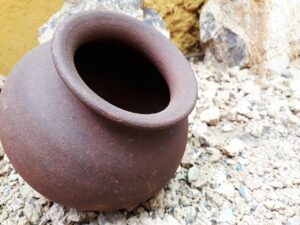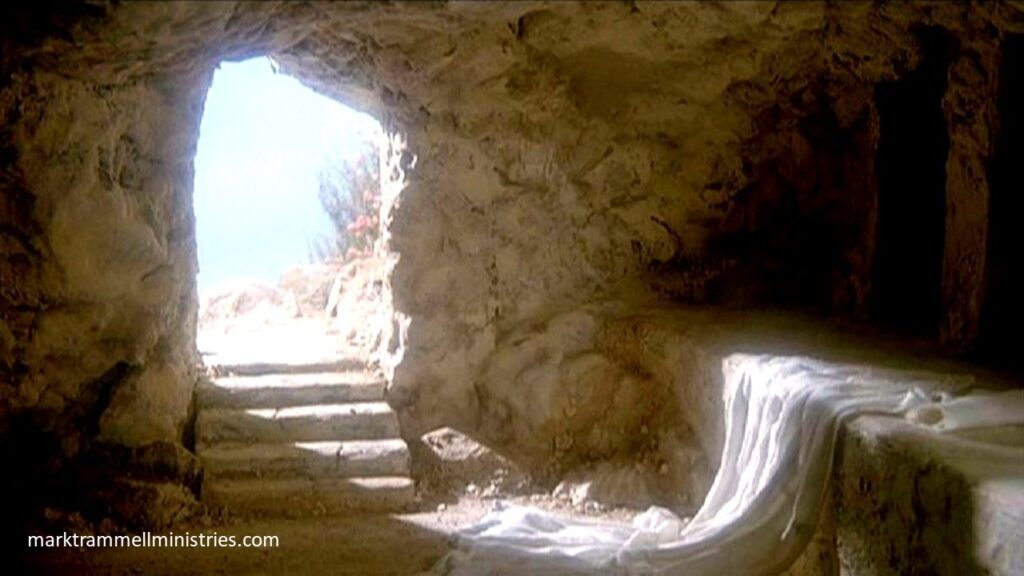“As Jesus was walking along, He saw a man who had been blind since birth” (John 9:1).
Perfectly orchestrated by God, Jesus slowed His steps until he stood in front of the blind man, who had lived without hope his entire life.
His disciples couldn’t resist asking Him whether the man’s blindness was the result of the man’s sin or his parents’ sins.
Jesus answered them, “It was not because of his sins or his parents’ sins. This [man’s blindness] happened so the power of God could be seen in him” (John 10:3).
Silently, Jesus spit on the ground and used his saliva to create mud. Lifting His arms, He carefully spread the mud on the blind man’s eyes. Next came His gentle words, “Go wash yourself in the Pool of Siloam” (John 10:7).
Let’s pause and put ourselves in his place…you have mud spread over your eyes. You wonder, what are people thinking about me? What if nothing happens? I’ll be an even bigger fool if I’m still blind.”
Yet, with fragile faith, the man clung to the arm of his helper as they ambled toward the Pool of Siloam. Once there, perhaps a kind soul reached in his robe, withdrew a cloth, and placed it in the assistant’s hand. After leading him down the steps to the water and saturating the cloth, the man’s companion softly wiped the brown mud from one closed eye and then the other.
The silent crowd waited. With hope filling his heart, the man gradually opened both eyes. A brilliant smile spread across his weathered face as he began his assent.
Can’t you imagine the commotion in the crowd when they saw him climb out of the pool by himself?
Though accustomed to staying in the shadows, he couldn’t resist raising his arms and shouting, “I can see! I can see!”
This joyful scene always reminds me of the chorus a group of my college friends and I enjoyed singing, along with gestures, “Walking, and leaping, and praising God; walking, and leaping, and praising God. In the name of Jesus Christ of Nazarene, rise up and walk.” Though these words referred to the lame man’s miracle, we always envisioned the blind man jumping and leaping and praising God for the miracle of his sight!
Amazing symbolism is embodied in that unforgettable day. Jesus didn’t instruct the blind man to wash in the Pool of Siloam simply because it was the only source of fresh water within the walls of ancient Jerusalem.
God directed Him to choose the Pool of Siloam because Siloam means “sent.” Two people envisioned the significance this way:
The blind man was sent to a pool called “Sent”
by the One who was Himself sent by God into the world.
The One sent by God to be our Savior used the Pool
of “Sent” to prove that He is the Light of the World.
After the healed man returned, he had no time to celebrate his miracle. His neighbors and others who knew him didn’t believe his story and debated among themselves. The Pharisees and Jewish leaders constantly bombarded him with intense questions and angry accusations.
Worn out, his only recourse was to tell the truth: “I don’t know whether he is a sinner. But I know this: I was blind and now I can see?” (John 9:25).
As time passed by, this underprivileged man began to reply to questions with wisdom only God could have supplied. One day he announced to the leaders, “Ever since the world began, no one has been able to open the eyes of someone born blind. If this man were not from God, he couldn’t have done it.” (John 9:32-33).
Enraged, his accusers shouted at him, “Are you trying to teach us?” (John 9:34). Then they threw him out of the synagogue.
Later, when Jesus heard what happened, he found the man and asked, “Do you believe in the Son of Man?” (John 9:35).
The man answered, “Who is he, sir? I want to believe in him,” (John 9:36).
“You have seen him,” Jesus said, “and he is speaking to you!” (John 9:37).
“Yes, Lord, I believe!” the man said and He worshiped Jesus. (John 9:38).
Jesus had already performed His miraculous physical healing. The man’s eyes were probably still bright with wonder. However, during this conversation, a greater healing had taken place. The moment the man declared, “Yes, Lord, I believe,” the Light of the World filled his heart, soul, and mind, and changed his life forever.
As we consider how God rescued us from an ordinary existence that would have left us without hope of eternal life, may we say with the blind man, “Once I was blind but now I see.”
“O Sovereign Lord! You made the heavens
and earth by your strong hand
and powerful arm.
Nothing is too hard for You!”
Jeremiah 32:17 (NLT)
Have you been faced with something in your life you thought was impossible to overcome and God provided an unexpected solution? Thank God as you recall your amazing experience and share it with others. Why not begin now by leaving your comment in the box below?



